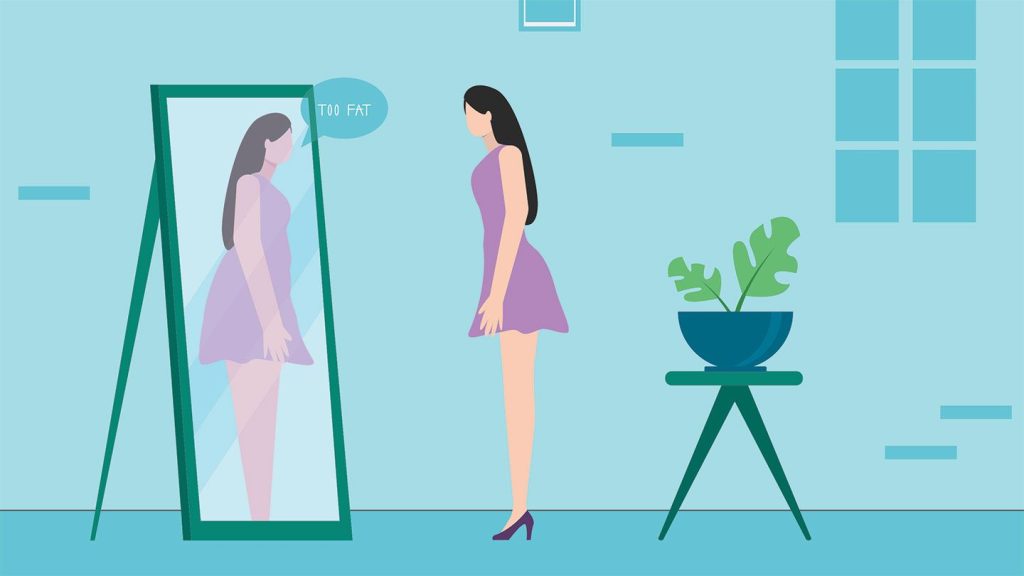Anorexia nervosa is a serious mental disorder that causes people to obsess about their weight and food intake. People with anorexia often have a distorted view of their body and believe that they are overweight even when they are not. As a result, they will go to great lengths to lose weight, even if it means starving themselves or exercising excessively. Anorexia can be deadly if left untreated, so it is important to get help if you think you or someone you know may be suffering from it. In this blog post, we will discuss the symptoms, causes, and treatment of anorexia nervosa.
Contents
- 1 What Is Anorexia Nervosa?
- 2 Signs of Anorexia Nervosa
- 3 Stages of Anorexia Nervosa
- 4 Causes of Anorexia Nervosa
- 5 Risk Factors of Anorexia Nervosa
- 6 Negative Impacts of Anorexia Nervosa
- 7 Diagnosis of Anorexia Nervosa
- 8 Treatment Options for Anorexia Nervosa
- 9 Coping-Up With Anorexia Nervosa
- 10 Conclusion
- 11 A Word From Therapy Mantra
What Is Anorexia Nervosa?
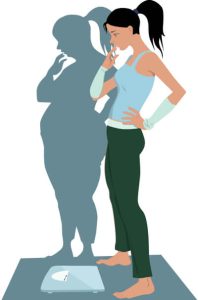 Anorexia nervosa is a serious, life-threatening mental illness. It is characterized by an obsessive fear of weight gain and extreme thinness (anorexia). People with anorexia eat very little and often exercise obsessively in order to lose weight. As a result, they can become dangerously underweight.
Anorexia nervosa is a serious, life-threatening mental illness. It is characterized by an obsessive fear of weight gain and extreme thinness (anorexia). People with anorexia eat very little and often exercise obsessively in order to lose weight. As a result, they can become dangerously underweight.
Anorexia has the highest mortality rate of any psychiatric disorder. Up to 20 percent of people with anorexia die from it. However, early diagnosis and treatment can improve prognosis significantly.
Signs of Anorexia Nervosa
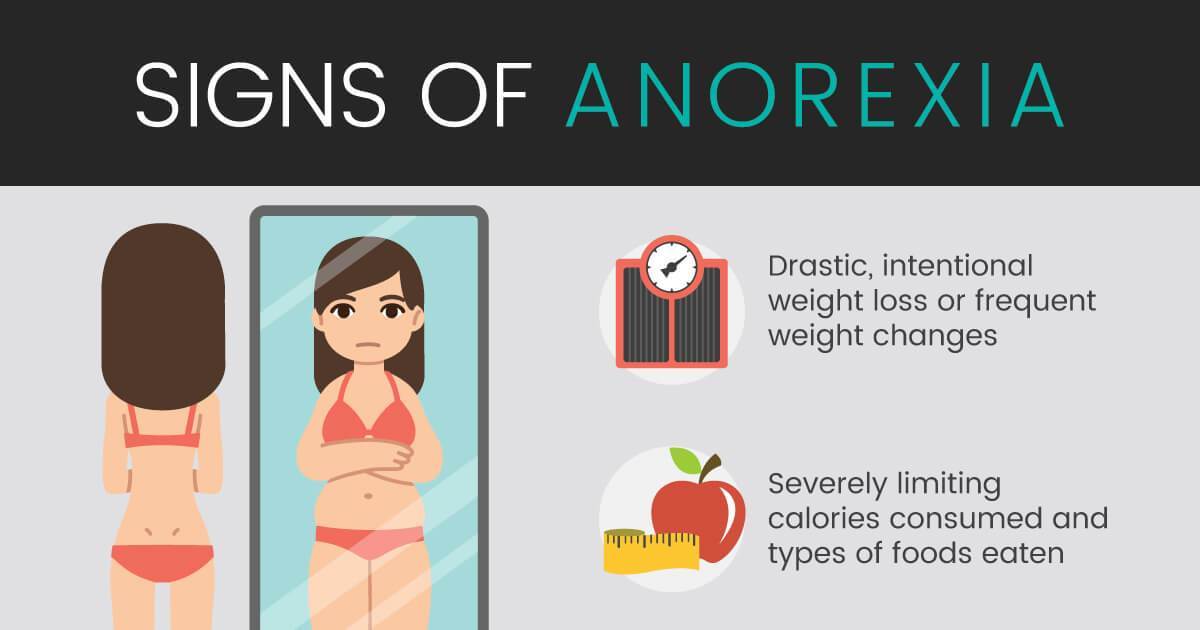
There are many signs and symptoms of anorexia nervosa. People with anorexia often have a distorted view of their body image and see themselves as overweight, even when they are dangerously thin. Some of these are:
Eating Very Less
This sign is usually the most obvious. People with anorexia nervosa will typically eat much less than what is considered healthy. They may obsessively count calories or avoid eating certain foods altogether.
Exercising Too Much
People with anorexia often exercise excessively as a way to burn calories and control their weight. This can lead to serious health problems, such as heart problems, joint pain, and fatigue.
Making Excuses for Not Eating
People with anorexia will often find ways to excuse not eating. For example, they may say that they’re too busy or that they don’t have time to eat. This can be very dangerous, as it can lead to malnutrition and other health problems.
Having Distorted Body Image
People with anorexia often have a distorted view of their body image. They may see themselves as overweight, even when they are dangerously thin. This can lead to many unhealthy behaviors, such as excessive dieting and exercise.
Seeking Weight Loss Surgery
Some people with anorexia nervosa will seek out weight loss surgery in order to become thinner. This is extremely dangerous and can be fatal. Sometimes people with anorexia will also use laxatives or diuretics to lose weight, which can also be dangerous.
Constant Weight Fluctuations
There are also times when people with anorexia will have sudden weight fluctuations. This can be due to water retention, changes in the menstrual cycle, or even starvation.
Tiredness and Weakness
People with anorexia often feel tired and weak. This is because their body isn’t getting the nutrients it needs to function properly.
Irregular Heartbeat
An irregular heartbeat is another sign that someone may have anorexia nervosa. This is caused by the low levels of potassium and other minerals in the blood.
Sensitivity To Cold
People with anorexia are often sensitive to cold temperatures because they have a low body temperature. This is due to a lack of energy reserves and reduced muscle mass.
Mental Health Problems
This sign also isn’t specific to anorexia nervosa, but people with this disorder are often prone to other mental health problems, such as depression and anxiety.
Stages of Anorexia Nervosa
 There are many different stages of anorexia nervosa. In the beginning, people may only have a few signs and symptoms. As the disorder progresses, it can become more severe.
There are many different stages of anorexia nervosa. In the beginning, people may only have a few signs and symptoms. As the disorder progresses, it can become more severe.
Stage I: Preoccupation With Weight and Appearance
In this stage, people are preoccupied with their weight and appearance. They often have a distorted view of their body image and see themselves as overweight, even when they are dangerously thin.
Stage II: Restricting Food Intake
In this stage, people will start to restrict their food intake. They may count calories or avoid eating certain foods altogether. This can lead to malnutrition and other health problems.
Stage III: Loss of Control Over Eating Behavior
In this stage, people lose control over their eating behavior. They may start to binge eat or purge after eating. This can lead to weight gain and other health problems.
Stage IV: Extreme Weight Loss
In this stage, people lose a lot of weight and maybe dangerously thin. They often have a distorted view of their body image and see themselves as overweight, even when they are dangerously thin. This can lead to many health problems, including death.
Causes of Anorexia Nervosa
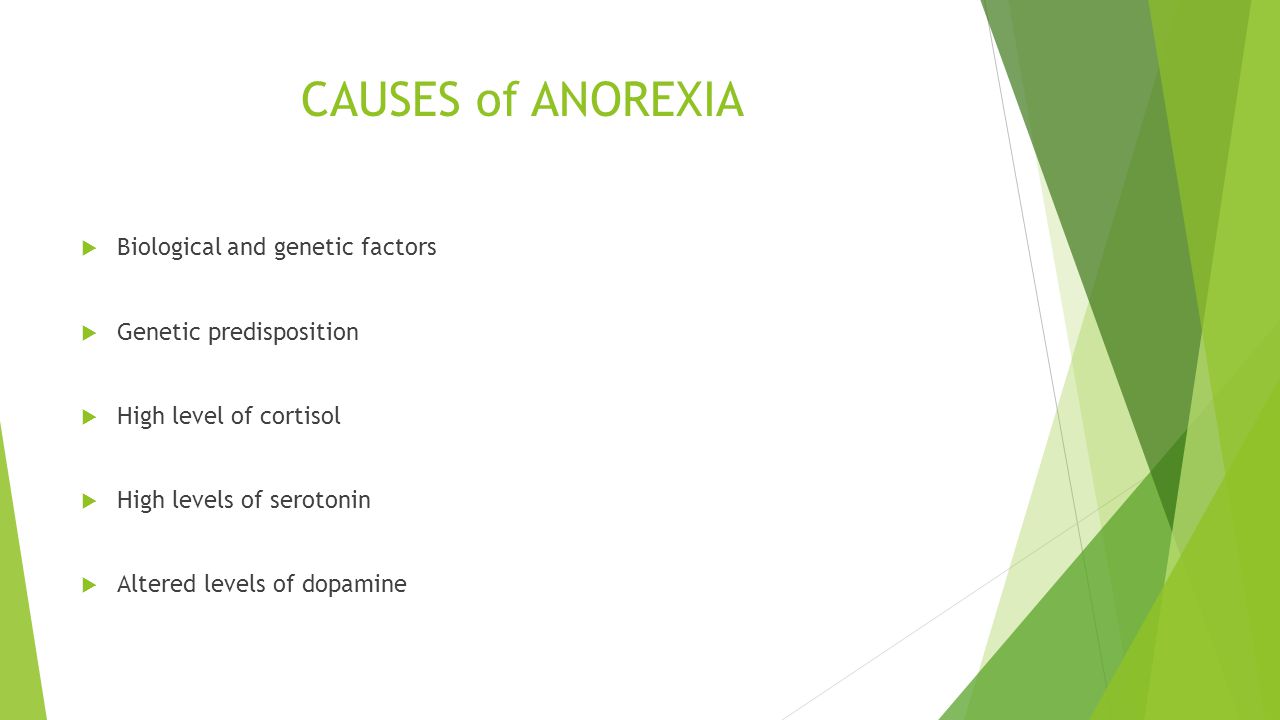
There can be many causes of anorexia nervosa. Some of these are:
Genetics
Anorexia may be hereditary. If someone in your family has had anorexia, you’re more likely to develop it yourself. There can be a genetic component to the disorder.
Environmental Factors
The environment can also play a role in causing anorexia nervosa. For example, if someone is constantly surrounded by images of thin people or is teased about their weight, they may be more likely to develop the disorder.
Bullying and Teasing
Bullying and teasing can also lead to anorexia nervosa. If someone is constantly ridiculed for being overweight or told that they’re ugly, they may start to obsess over their weight and diet excessively.
Low Self-esteem
People with low self-esteem are often more prone to developing anorexia nervosa. They may feel like they’re not good enough as they are and see being thin as the only way to be accepted by others.
Poor Body Image
People with poor body image are also more likely to develop anorexia nervosa. They may see their body as being flawed in some way and believe that dieting and exercise will make them look better.
Pressure From Society
There can also be pressure from society to be thin. This is especially true for women, who are often held to unrealistic beauty standards. Young girls may feel like they need to lose weight in order to fit in or be popular.
Relationship Problems
There can be a link between anorexia nervosa and relationship problems. People with the disorder may use food as a way to control their partner or make them feel guilty. They may also use food as a way to cope with stress or emotional pain.
Risk Factors of Anorexia Nervosa

There are many risk factors that can have an impact on whether or not someone develops anorexia nervosa. Some of these are:
Age
The younger someone is when they develop anorexia nervosa, the more likely they are to have a negative outcome. This is because their body may not be able to recover from the effects of the disorder.
Gender
Anorexia nervosa is much more common in women than it is in men. This may be due to the societal pressure to be thin that women face. Sometimes, men may be less likely to seek help for an eating disorder because of the stigma attached to it.
Personality Traits
People who are perfectionists or have low self-esteem are more likely to develop anorexia nervosa. They may be more prone to obsessing over their weight and dieting excessively.
Mental Illness
People with other mental illnesses, such as depression or anxiety, are also at risk of developing anorexia nervosa. This is because they may turn to food as a way to cope with their symptoms.
Stressful Life Events
Stressful life events can also trigger anorexia nervosa. For example, if someone has just gone through a traumatic experience, they may start to restrict their food intake as a way to cope.
Family History
If someone has a family history of eating disorders, they are more likely to develop one themselves. This may be due to genetics or environmental factors. Sometimes, there may not be a clear cause of anorexia nervosa.
Negative Impacts of Anorexia Nervosa

There are many negative impacts of anorexia nervosa. Some of these are:
Health Problems
People with anorexia nervosa often have health problems as a result of their disorder. These can include heart problems, kidney damage, and fertility issues. Sometimes, people with anorexia nervosa die from their illness. There can be a long-term impact on a person’s health even if they eventually recover from anorexia nervosa.
Emotional Problems
People with anorexia nervosa often struggle with emotional problems. They may feel ashamed of their disorder, guilty about the food they’re eating, and anxious about their weight. This can lead to depression and other mental health issues.
Social Problems
People with anorexia nervosa may have difficulty maintaining relationships due to their disorder. They may be secretive about their eating habits and isolate themselves from friends and family. This can lead to feelings of loneliness and isolation.
Diagnosis of Anorexia Nervosa
 The diagnosis of anorexia nervosa can be difficult because there are no specific physical symptoms. A doctor will usually base their diagnosis on a person’s eating habits and weight. They may also ask about the person’s mental health history and family history.
The diagnosis of anorexia nervosa can be difficult because there are no specific physical symptoms. A doctor will usually base their diagnosis on a person’s eating habits and weight. They may also ask about the person’s mental health history and family history.
The doctor may perform a lot of tests to rule out other possible causes of the person’s weight loss. These can include blood tests, urine tests, and scans.
Blood Tests
Blood tests are used to check a person’s liver function and thyroid function. They can also be used to look for signs of malnutrition.
Urine Tests
Urine tests are used to assess the amount of protein in a person’s urine. This can indicate whether or not they are suffering from dehydration.
Scans
CT scans, MRI scans, and X-rays can all be used to check for problems with a person’s bones and organs. This is because people with anorexia nervosa often have health problems as a result of their disorder.
Self-Tests
There are many self-tests online that people can use to see if they may be suffering from anorexia nervosa. These tests ask questions about a person’s eating habits and weight. It is important to note that only a doctor can diagnose anorexia nervosa.
Treatment Options for Anorexia Nervosa
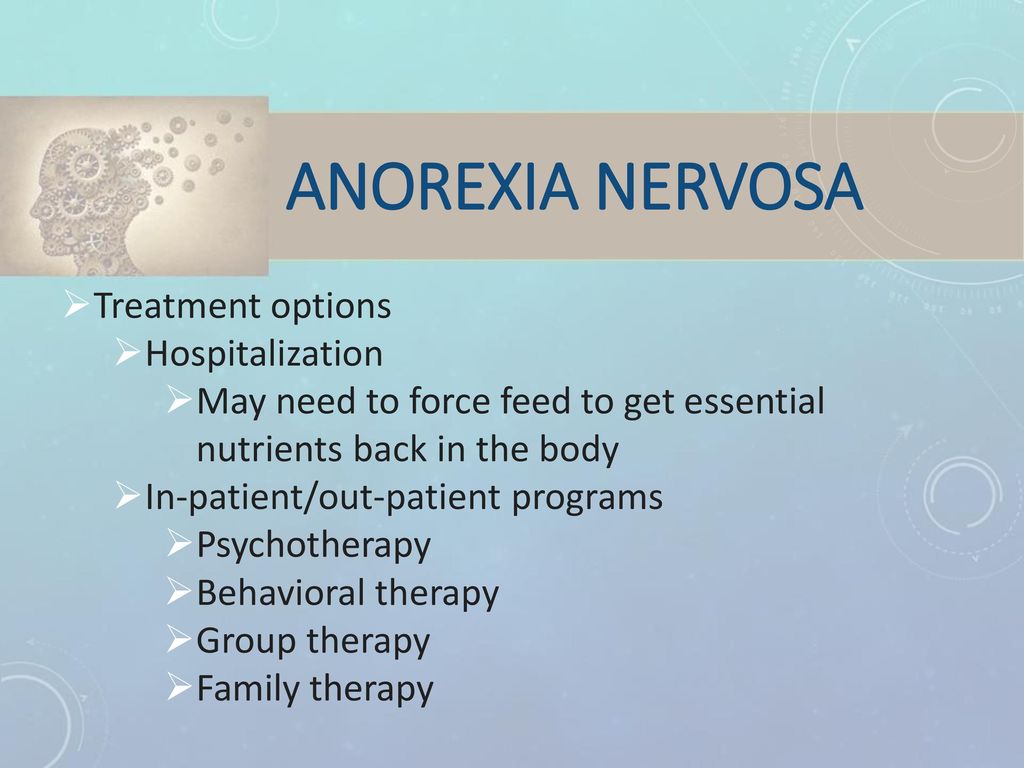
There are many treatment options available for people with anorexia nervosa. These include:
Counseling
Counseling is often a key part of treatment for people with anorexia nervosa. This can help the person to understand their disorder and learn how to cope with their thoughts and feelings. This type of therapy is called cognitive-behavioral therapy (CBT).
Medication
Some people with anorexia nervosa may also be prescribed medication. This can help to treat the emotional problems that often accompany the disorder. There are many medications too.
Nutritional Therapy
Nutritional therapy is often used to help people with anorexia nervosa. This involves working with a dietitian to create a healthy meal plan that the person can follow.
Weight Restoration
One of the main goals of treatment for anorexia nervosa is weight restoration. This means helping the person to gain weight until they are within a healthy range. This can be a difficult process, but it is important for the person’s health.
Support Groups
There are also support groups available for people with anorexia nervosa. These can provide emotional support and practical advice from other people who understand what you are going through.
Coping-Up With Anorexia Nervosa
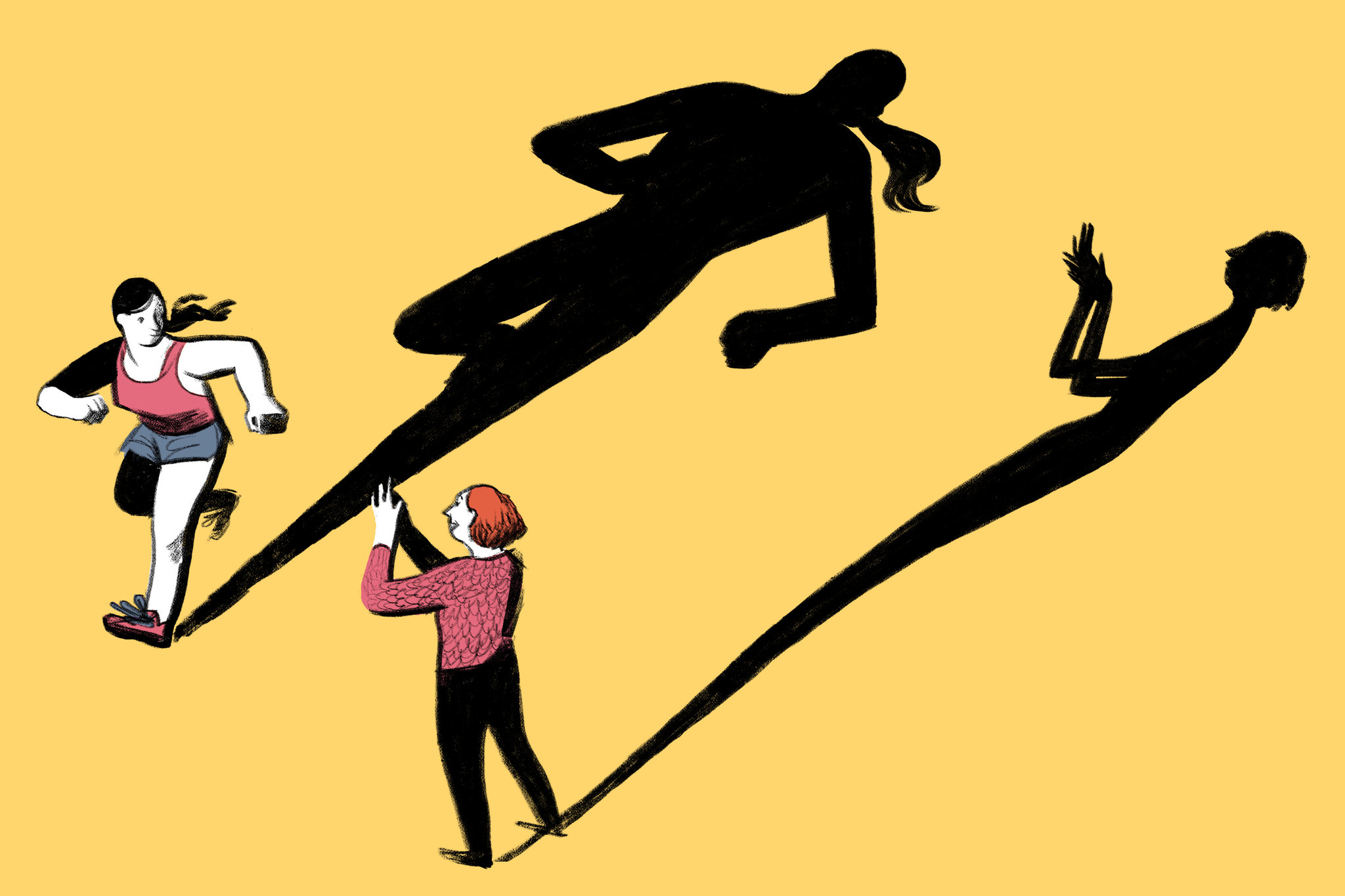
There are many ways through which one can cope with Anorexia. Few are as follows:
Talk To Someone
There are many people who would be more than happy to listen – whether it is a friend, family member, therapist, or any other support group. Talking openly and honestly about what is going on can help to reduce the feeling of isolation that often comes with anorexia nervosa.
Identify Triggers
It can be helpful to identify the things that trigger your eating disorder and try to avoid them if possible. This may mean avoiding certain people, places, or situations that make you feel overwhelmed or stressed.
Create Meal Plan
A meal plan can help you to stay on track with your eating goals. It can also help to prevent feelings of guilt and anxiety around food. You can also use a meal plan to track your progress.
Stay Positive
It is important to stay positive and upbeat during treatment for anorexia nervosa. This can be difficult, but it is crucial for your recovery. Try to find things that make you happy and focus on them as much as possible.
Get Active
Exercise can be a great way to boost your mood and help you feel better about yourself. It can also be helpful in restoring a healthy weight. try to find an activity that you enjoy and stick with it!
Exercise Moderately
Exercising moderately can help you to feel better both physically and emotionally. It is important not to overdo it, as this can actually have the opposite effect and lead to burnout.
Join Support Group
There are many support groups available for people with eating disorders. These can provide emotional support and practical advice from other people who understand what you are going through. Joining a group can be a great way to connect with others who are in a similar situation.
Seek Professional Help
If you feel like you are struggling to cope, it is important to seek professional help. A therapist or counselor can assist you in managing your symptoms and developing healthy coping mechanisms.”
Conclusion
A person with anorexia nervosa is struggling with a serious mental health disorder. It is important to seek professional help if you or someone you know is dealing with this condition. There are many treatments available that can help the person to regain their health and happiness.”
Sometimes a person with anorexia nervosa may also be prescribed medication to help treat the emotional problems that often accompany the disorder. There are many different types of medications available, so it is important to find one that works best for you.
A Word From Therapy Mantra
Your mental health — your psychological, emotional, and social well-being — has an impact on every aspect of your life. Positive mental health essentially allows you to effectively deal with life’s everyday challenges.
At Mantra Care, we have a team of therapists who provide affordable online therapy to assist you with issues such as depression, anxiety, stress, relationship, OCD, LGBTQ, and PTSD. You can take our mental health test. You can also book a free therapy or download our free Android or iOS app.
